DEAD TO ME – Season One & Two
A series about a powerful friendship that blossoms between a tightly wound widow and a free spirit with a shocking secret.

A series about a powerful friendship that blossoms between a tightly wound widow and a free spirit with a shocking secret.


I tuned into Christina Applegate’s return to headlining a TV series, Dead to Me, as I was going through my own breakup. The first season of this unique black comedy about grief was the perfect binge-watch, and season 2 matched it for twisted laughs and heart-wrenching storylines.
Following the death of her husband, Jen Harding (Applegate) seeks support at a grief counselling group, where she meets Judy Hale (Linda Cardellini). The first thing Judy says to Jen is a lie: she claims she made the coffee that Jen just insinuated was awful. This sets in motion a story revolving around well-intentioned lies, whose slow reveals end each episode on a suspenseful note. It’s a compelling tactic that lets the show play out like a catchy pop song. As each twist changes the plot and shifts the dynamics of the characters, it’s hard to watch subsequent episodes without wondering where on earth this runaway train of a story is going next!
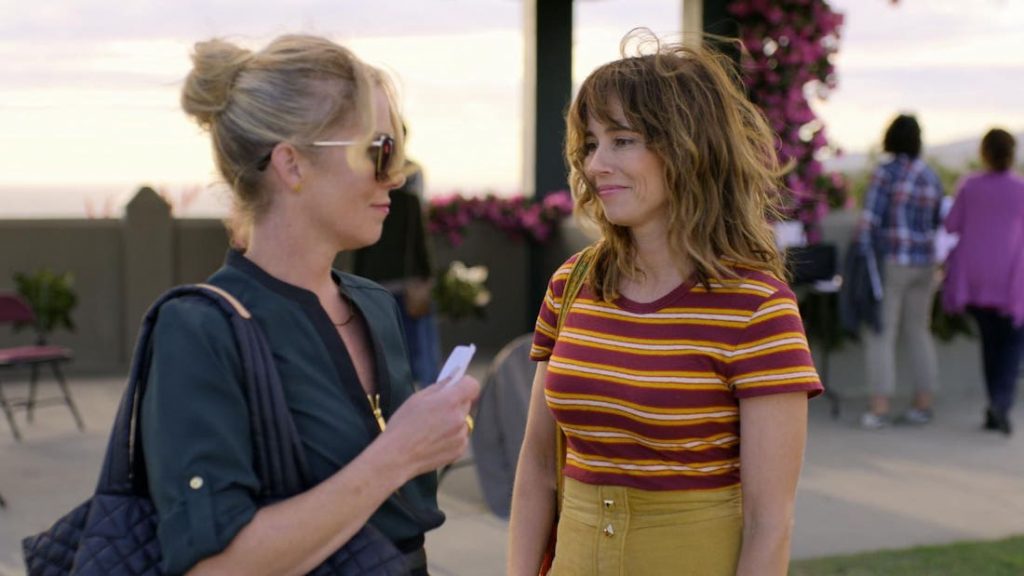
While season 1 made it hard to get to know Judy in a serious light because of its twists, season 2 hammers home how much she’s unable to turn off her big heart. She cares for everyone, even those she shouldn’t, or when she’s putting herself in jeopardy. I first discovered Linda Cardellini as Velma in the live-action Scooby-Doo films (her greater claim to fame, Freaks and Geeks, aired slightly too early in my adolescence), but in both roles, she never got the chance to sinks her teeth into a character like Judy. It’s a well-deserved part that Cardellini plays to perfection, showing considerable range—since we get to hate her, love her, sympathize with her, and laugh with her.
This is definitely, however, Applegate’s show. It’s about grief first and foremost, and a battered woman’s rage as she struggles to connect with her family and keep working. Grief strikes all parts of Jen’s life from her professional relationship to the one with her kids, even affecting how she sees herself and her new friend. Applegate’s performance throughout is terrific. She inspires laughter and sadness at the same time—especially as, little by little, the context of her husband’s death, and the life she led before with him, come to light. It’s not clear whether her grief comes from his sudden passing or is it merely an excuse for her to finally let out the emotions she’s had bottled up for so long?

The most interesting part about Jen is she lost her mom at a young age to breast cancer. As a result, she’s undergone a double mastectomy so her kids “wouldn’t grow up without a mother like I had to.” I sometimes interpreted Jen’s grief to be about her continuing struggle to get over losing her mom while trying to accept herself as a woman after the surgery. While the show cares more about developing the dynamics between the two leads and the unpredictable process of grief, some audiences might want more from the mysterious thrills of the plot, but Applegate and Cardellini’s chemistry was enough to keep me hooked.
It’s not just Jen’s relationship with her mother that the show explores. In the spirit of Mother’s Day, season 2 has something to say about all the character’s maternal relationships. This includes a welcome, albeit it brief, appearance by Applegate’s old Married… with Children co-star Katey Sagal as Judy’s convict mother. The show also examines Jen’s own kid’s relationship with her, which is in constant flux. It could be said that a persisting and poignant theme of the second season is the appreciation, but accompanied resentment, for the matriarchy.
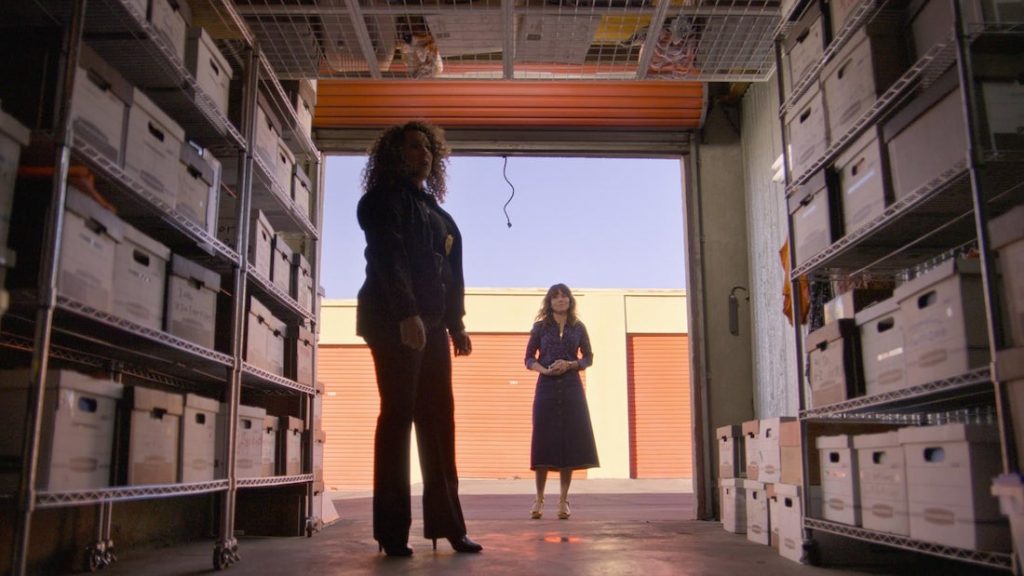
The detective, Ana Perez (Diana Maria Riva), assigned to the hit-and-run case that resulted in the death of Jen’s husband, was one of my favourite characters in the series. Riva plays her role as a cop like a fed-up parent when she deals with Jen, who should have had her on speed dial since she calls Perez whenever she sees a speeding car. The further exploration of Perez in season 2, who has significantly more screentime, is one of many positive moves forward. In her own subplot, we see her heart grow in warmth and appreciation, ultimately choosing her judgment and beliefs as a person over the murky and sometimes harsh bounds of the law. It will surely be controversial for some, but Riva pulls it off gracefully.
It’s an understatement to say the show is character-driven as it really is held together by Jen and Judy’s friendship. They contrast each other wonderfully, with Jen being a stern, cynical, hardened-by-the world mother-of-two forcing herself to put on a smile which isn’t always convincing, even to herself. On the other hand, Judy’s a spiritual guru, burning sage to clear spirits, and working as an art teacher in a retirement home, choosing to see the good in everyone. The unlikely duo as opposites attracting is a little cliche, but it works for the tone of the show and the story that creator Liz Feldman is telling.
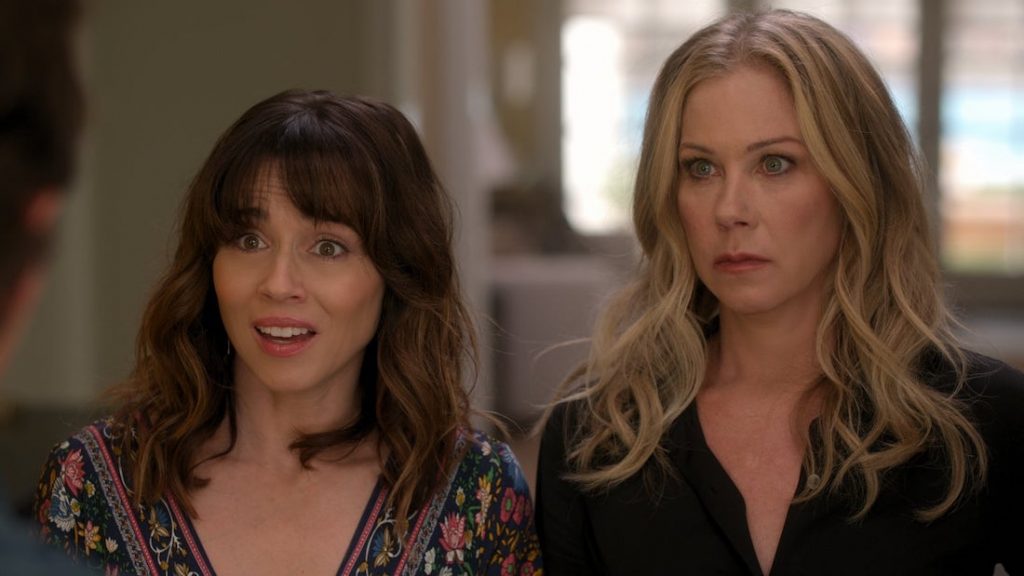
Dead to Me’s deep dive into grief and its authenticity is a big step up for Feldman, considering she previously worked as a writer and director on 2 Broke Girls; a multi-camera sitcom based on raunchy one-liners that were more often than not too racist or sexist to laugh at. The change in quality is especially evident in season 2, which strays from a non-linear plot to slowly reveal the aftermath of season 1 as its central hook. This was a smart decision on Feldman’s part as it gives more insight to the layered personalities of the characters, which at this point we can trust are who they appear to be, capitalizing on the talents involved. It comes to a head in the penultimate episode where both actresses give such heart-breaking performances that I almost found myself out of breath watching. It punches hard and you can understand where each character stands, not angry with each other, but angry and bereaved by circumstance.
Although some might disagree with the added plot details, like the inclusion of never-heard-of-before characters, which is more than likely to keep James Marsden involved to some extent, I think it ultimately worked by the time season 2 gets into its main story. Unlike season 1, it’s less about the mystery and more about the grief and evolution of the characters, from Jen and Judy to Detective Perez and Jen’s children. Feldman takes the perfect suburban Los Angeles community and bluntly exposes how nothing is ever as perfect as it seems. That the ‘swimming pool’, which they’re seen submerged in on the poster (also the title of a John Cheever short story with the same take on immaculate suburbia), is never as it appears on the surface. It takes a hit-and-run accident to uproot that ‘perfect’ standard for Jen and for her to discover real love and values that were just a facade in her married life. It’s a funny, but grizzly ride.
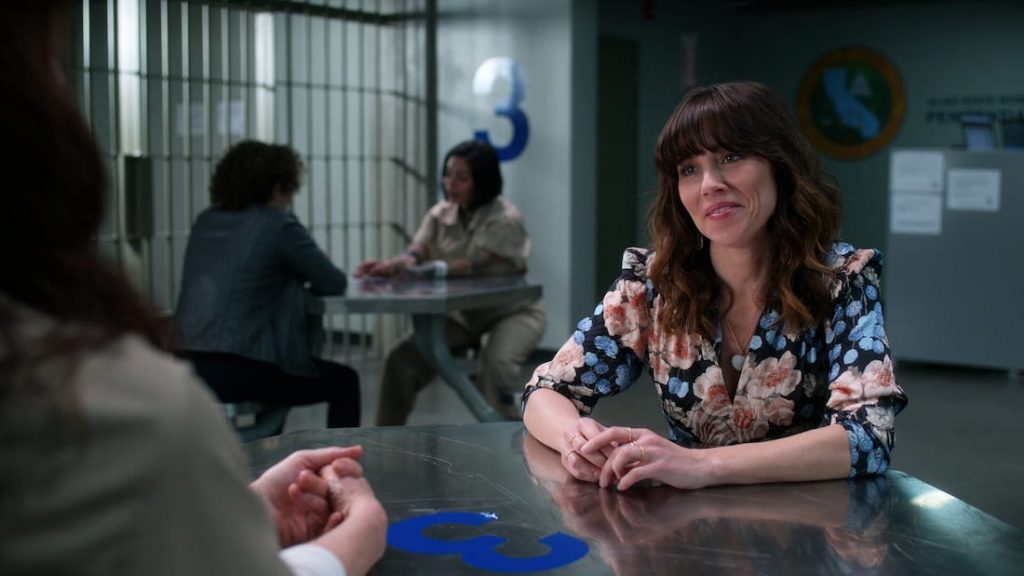
The show isn’t really groundbreaking. It’s an admirable addition to Netflix’s roster of female-led comedies (and a bit of a genre-bender itself with elements of comedy and drama and suspense), but there’s not much going on here in the way of art direction or storytelling we haven’t seen before. Season 1 relies far too heavily on trying to blindside us in its story, which we can usually already see coming.
It also suffers from glaring product placement elements that are near impossible to see past, feeling as though a commercial has been inserted. For example, Jen and her neighbour Karen discuss an ADT alarm system at the beginning of season 2 for almost two minutes and later in the season a whole episode is structured around one man’s Mercedes Benz convertible! It made for an interesting plot device, but there are way too many shots of its logo and the car driving around Los Angeles.
I respect the show, most of all, for its bold depiction of women. Judy and Jen aren’t always rewarding people, but who is? At least they have the excuse of grief to fall back on. There are story beats that work, and some that don’t, but the ones that don’t are never around for too long. The show cares more about creating multi-layered, interesting people rather than inserting powerful female characters just to juxtapose Hollywood’s affinity for men. I can’t picture anyone else but Applegate and Cardellini in the leads and although it has not yet been greenlit for season 3, I predict it’s a sure thing.

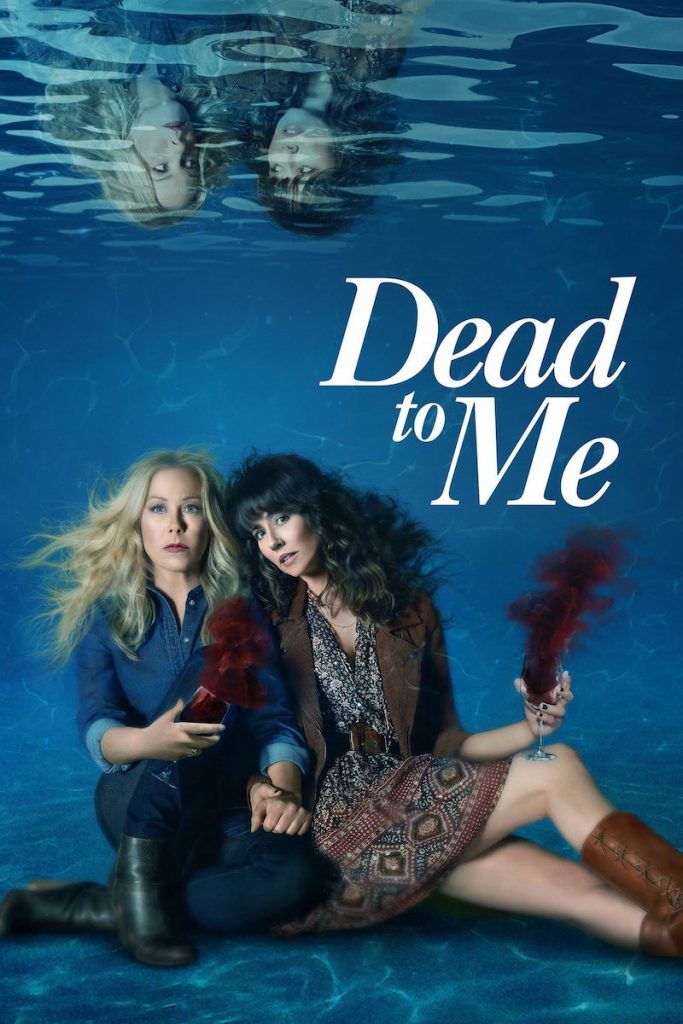
writers: Liz Feldman, Anthony King, Kate Robin, Abe Sylvia, Njeri Brown, Emma Rathbone, Kelly Hutchinson, Rebecca Addelman, Elizabeth Benjamin, Cara DiPaolo, Jessi Klein, Celeste Hughley & Dan Dietz.
directors: Amy York Rubin, Abe Sylvia, Minkie Spiro, Kat Coiro, Geeta Patel, Liza Johnson, Tamra Davis, Liz Allen Rosenbaum, Jennifer Getzingern & Silver Tree.
starring: Christina Applegate, Linda Cardellini, James Marsden, Max Jenkins, Sam McCarthy & Luke Roessler.
